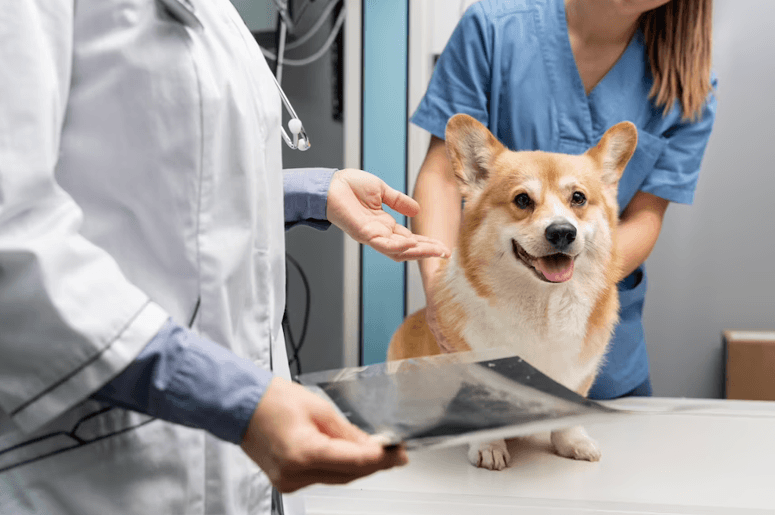To properly care for our canine companions, it is crucial to understand the signs and symptoms of various health issues they may encounter. One common concern among dog owners is distinguishing between wheezing and coughing, as both can indicate different underlying problems.
In this article, we will dive into the intricacies of a dog’s respiratory system, explore the causes, symptoms, and treatment options for dog wheezing and coughing, and provide tips on when to seek veterinary help.
Understanding Your Dog’s Respiratory System
Let’s start by exploring the basic anatomy of a dog’s respiratory system. The nose serves as the entry point for air, which then travels down the throat and into the windpipe, also known as the trachea. From there, the air moves into the lungs, exchanging oxygen for carbon dioxide.
The lungs are a crucial component of a dog’s respiratory system. They are responsible for exchanging gases, allowing oxygen to be taken in and carbon dioxide to be expelled.
Situated beneath the ribcage, the diaphragm is a dome-like muscle. As a dog breathes in, this muscle tightens and moves downward, making extra room in the chest. This extra space lets the lungs get filled with air. As the diaphragm relaxes, it moves upward again, pushing the air out of the lungs when the dog breathes.
Common Respiratory Problems in Dogs
Wheezing and coughing are two specific symptoms that can arise from problems such as:
Allergies
Allergies can stir up trouble in a dog’s breathing system, causing wheezing and coughing. Sometimes, these problems bring along itchy skin, sneezing fits, and teary eyes. All sorts of stuff can set off allergies, from plant pollen and tiny dust mites to specific foods and even some medicines.
Infections
Infections like kennel cough can also affect a dog’s respiratory system. Kennel cough is a highly contagious respiratory disease that causes airway inflammation. It is commonly spread in places where dogs are close to each other, such as boarding facilities or dog parks. Symptoms of kennel cough can include coughing that sounds dry and hacky, sneezing, and a runny nose.
Foreign Objects
Foreign objects lodged in the airways can be a serious concern for dogs. Dogs have a curious nature and may accidentally inhale or swallow objects that can become stuck in their throat or windpipe. This can cause choking and difficulty breathing, leading to symptoms such as wheezing and coughing. Common objects that can cause obstruction include small toys, bones, or even pieces of food.
Structural abnormalities
Structural abnormalities in a dog’s respiratory system can also contribute to respiratory problems. Certain breeds are more prone to these abnormalities, including narrowed airways, collapsed trachea, or elongated soft palate.
Identifying Wheezing in Dogs
Wheezing, characterised by a high-pitched whistling sound during breathing, can cause concern for dog owners. It is often associated with a narrowing or blockage of the airways, making it difficult for the dog to breathe normally.
Causes of Wheezing in Dogs
Wheezing in dogs can have numerous underlying causes. Allergies, asthma, respiratory infections, heart disease, and even foreign objects lodged in the airways can contribute to wheezing. Identifying the root cause is crucial for proper treatment.
Symptoms and Signs of Wheezing
When your dog is wheezing, you may notice symptoms such as rapid breathing, shortness of breath, coughing, and reduced energy levels. These signs should be addressed, as they may indicate a more significant underlying issue.
Treatment Options for Wheezing
The approach will depend on the underlying cause of wheezing in dogs. Medications such as bronchodilators or corticosteroids may be prescribed to alleviate inflammation and open up the airways. It is essential to consult with a veterinarian to determine the best course of action for your furry friend.
Understanding Coughing in Dogs
Coughing is another respiratory symptom that dog owners may encounter. Unlike wheezing, which is characterised by a whistling sound, coughing generally produces a more pronounced and audible sound.
Causes of Coughing in Dogs
Similar to wheezing, there are various reasons why dogs may develop a cough. Some common causes include respiratory infections, allergies, heart disease, tracheal collapse, and even kennel cough. Determining the cause is crucial for effective treatment.
Symptoms and Signs of Coughing
If your dog is coughing, you may notice other symptoms, such as gagging, retching, difficulty breathing, and a rattling sound in the chest. These signs may vary depending on the underlying cause of the cough.
Treatment Options for Coughing
Treating a cough in dogs involves addressing the underlying cause. Medications, such as antibiotics, cough suppressants, and anti-inflammatory drugs, may be prescribed depending on the nature of the cough. A visit to the veterinarian is essential to determine the most appropriate treatment plan.
Distinguishing Between Wheezing and Coughing
While both wheezing and coughing can be alarming, there are key differences between the two that can help dog owners differentiate between them.
Key Differences in Symptoms
A whistling sound typically accompanies wheezing and may be associated with difficulty breathing, rapid breathing, and reduced energy levels. On the other hand, coughing generally produces a more pronounced sound and may involve gagging, retching, and a rattling sound in the chest.
Diagnostic Tests for Wheezing and Coughing
Veterinarians may perform various diagnostic tests when determining the underlying cause of wheezing or coughing. These can include imaging such as X-rays or ultrasounds, blood tests, and even endoscopy to visualise the airways. These tests help provide a clearer picture of the issue and inform the appropriate treatment plan.
When to Seek Veterinary Help
While some cases of wheezing or coughing may resolve independently, monitoring your dog closely and seeking veterinary help if necessary is important.
Recognising Emergency Situations
In certain instances, wheezing or coughing can be signs of an emergency. If your dog struggles to breathe, has a bluish tint to the gums or tongue, or is experiencing severe distress, immediate veterinary intervention is crucial. Time is of the essence in these cases.
Preparing for Your Vet Visit
Before visiting the veterinarian, please note your dog’s symptoms, when they started, and any possible behavioural triggers or changes. This information will help your veterinarian assess the situation more effectively and develop an appropriate treatment strategy.
Conclusion
Differentiating between wheezing and coughing in dogs is vital for identifying potential respiratory issues and seeking appropriate treatment. Understanding the underlying causes, symptoms, and treatment options for wheezing and coughing allows us to provide our four-legged companions with the care they need and deserve. If in doubt, consult a veterinarian for professional guidance in ensuring your dog’s respiratory health.


